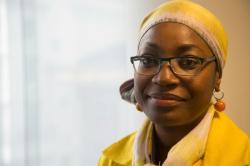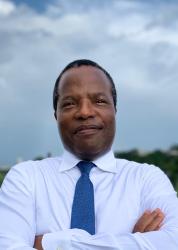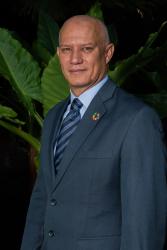

9:00 am EDT - 10:30 am EDT
Past Event
Global shocks such as climate change and the COVID-19 pandemic are laying bare the fragility and vulnerability of social and economic systems across the world, reinforcing the need to prepare for future shocks. Such events are timely reminders that Africa must create more resilient economies and societies. One important policy choice is the acceleration of a green transition that combines opportunities for economic growth, job creation, and improvements in livelihoods. However, as with any transition, risks and cost implications create barriers to adoption.
Africa is the most-exposed region to the adverse effects of climate change despite contributing the least to the problem. Increasingly numerous climate-related disasters—including droughts, cyclones, floods, and food insecurity—provide compelling narratives for growth along a low-carbon resilient trajectory. Climate change is a global problem that requires a global solution: Already, European leaders, under the European Green Deal, are implementing policies to curb their region’s carbon contributions. Now is the right time for those policymakers to share their lessons learned to support Africa’s green transition while also bolstering commercial and diplomatic ties.
To celebrate Africa Climate week, on Monday, June 14, the Brookings Africa Growth Initiative and the United Nations University’s Institute for Natural Resources in Africa (UNU-INRA) co-hosted the launch of two key publications: the discussion paper “Bridges of Opportunity: Partnering for Africa–Europe Green Development” and the briefing note “Building Forward Better Towards Africa’s Green Transformation: Prospects for Africa-Europe Collaboration.” The discussion featured prominent experts and policymakers to explore the challenges of pursuing a green transition for Africa and opportunities to encourage such a transition under a strengthened African-European partnership. Panelists offered insights on regional trends and provided recommendations highlighted in the reports for national governments, regional organizations, multilateral institutions, the private sector, and civil society actors as the continent tackles climate change.
After the program, the panelists took audience questions. Viewers submitted questions for panelists by emailing [email protected] or via Twitter @BrookingsGlobal by using #GreenTransitions.

Moderator

Panelist



Amar Bhattacharya, Homi Kharas, Charlotte Rivard, Eleonore Soubeyran
June 30, 2025

Marit Kitaw
March 19, 2025

Homi Kharas, Junjie Ren
March 17, 2025